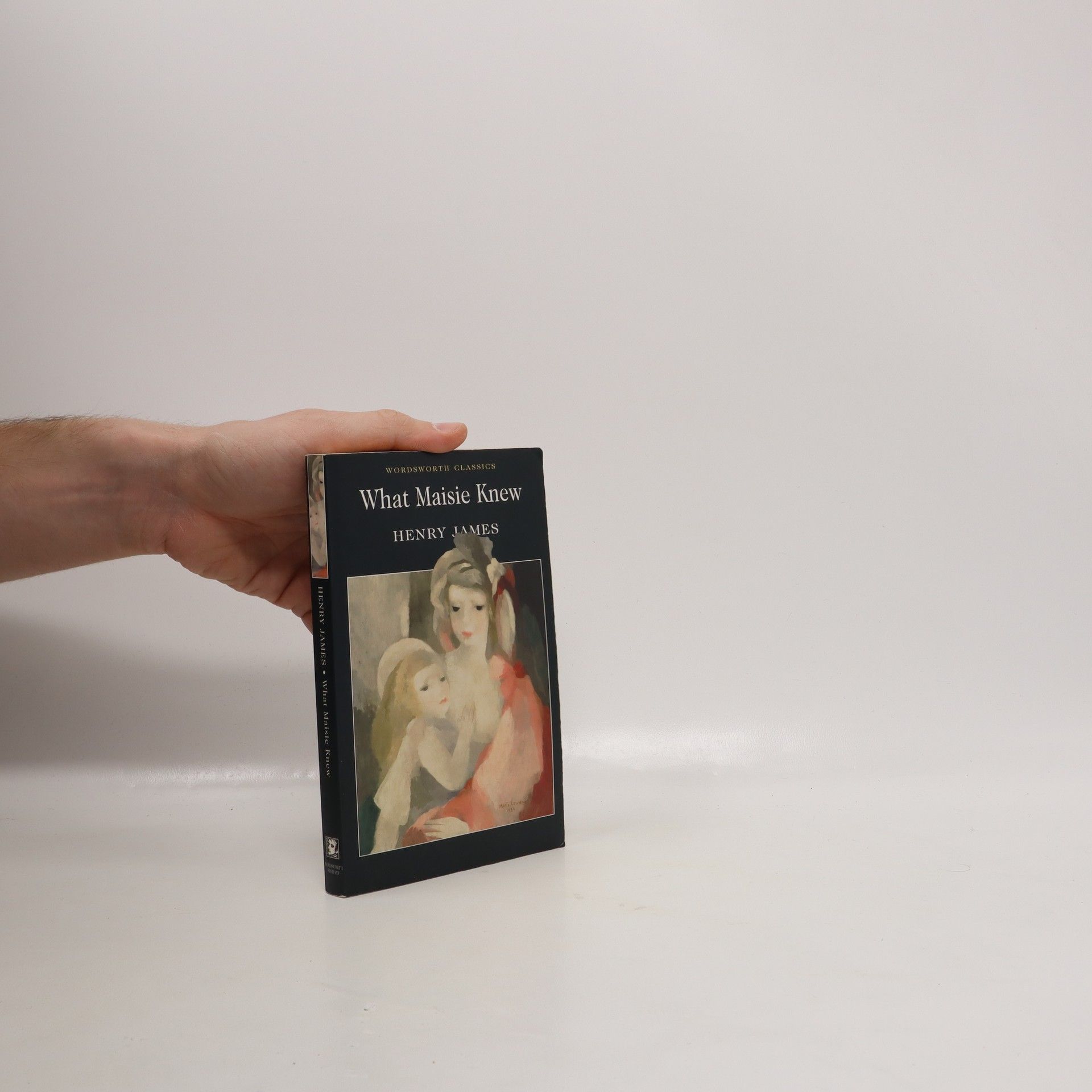Christopher Ricks's 'Oxford Book of English Verse' -- third in succession, after Arthur Quiller-Couch's original volume (1900) and Helen Gardner's new selection (1972) -- is a treasury from more than seven centuries of the poet's art. Poems that are also translations are included.
Christopher Ricks Livres
Christopher Ricks est un critique et un universitaire littéraire britannique, connu pour sa défense de la poésie victorienne et son enthousiasme pour les paroles de Bob Dylan. Ses critiques sont acerbes, attaquant ceux qu'il juge prétentieux, tout en louant chaleureusement ceux qu'il trouve humains ou humoristiques. Son intelligence critique et sa prose éloquente sont inégalées, faisant de lui le type de critique dont tout poète rêve.
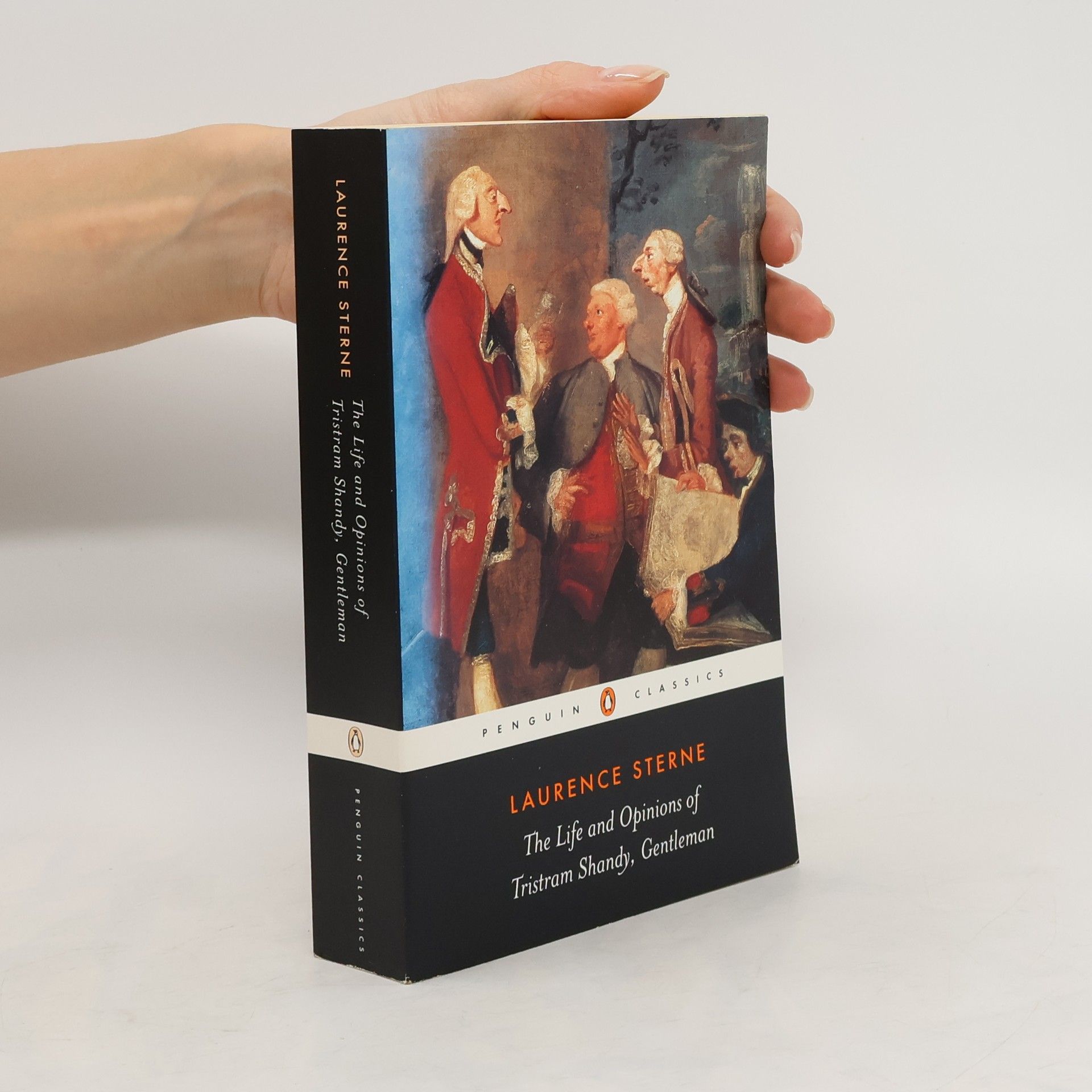
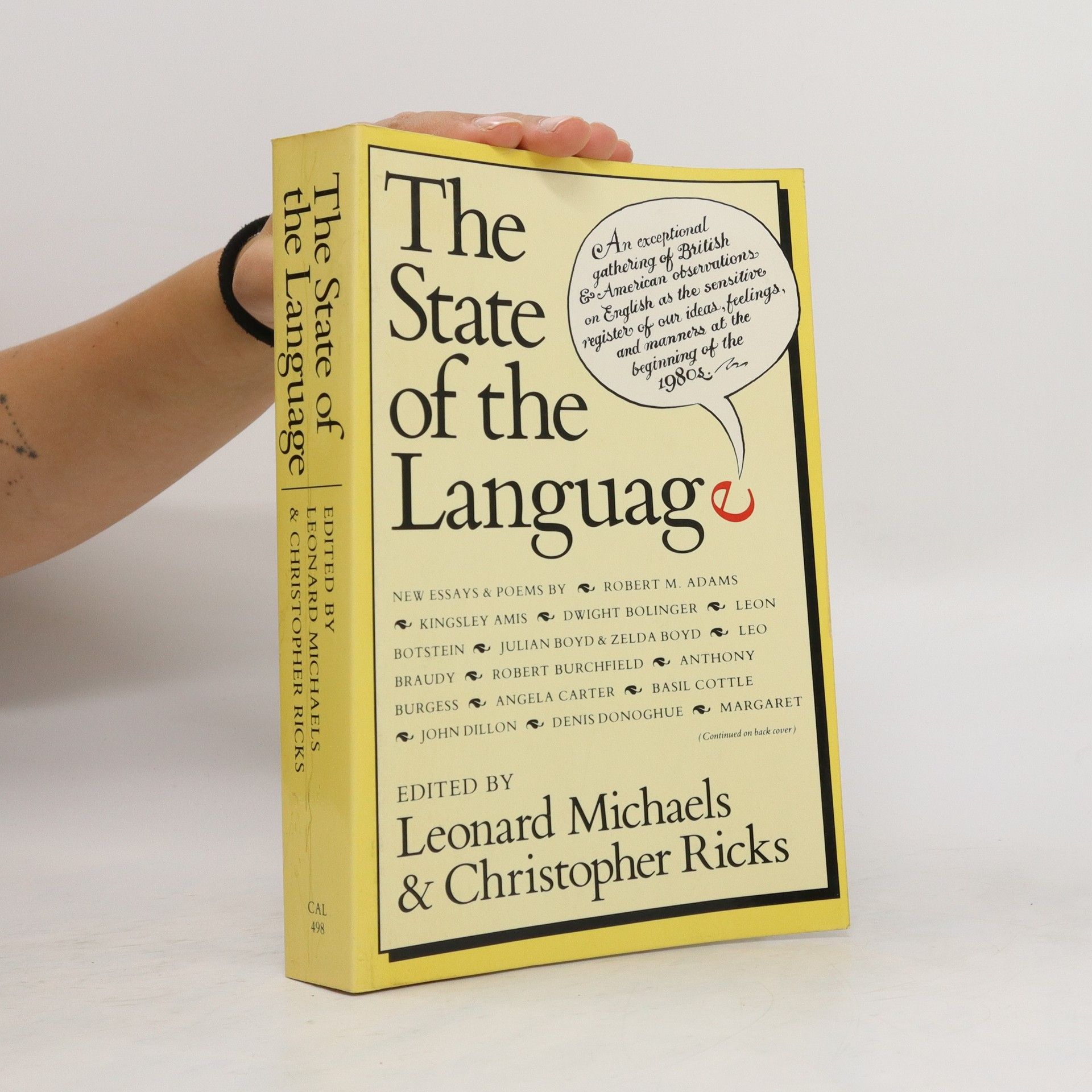
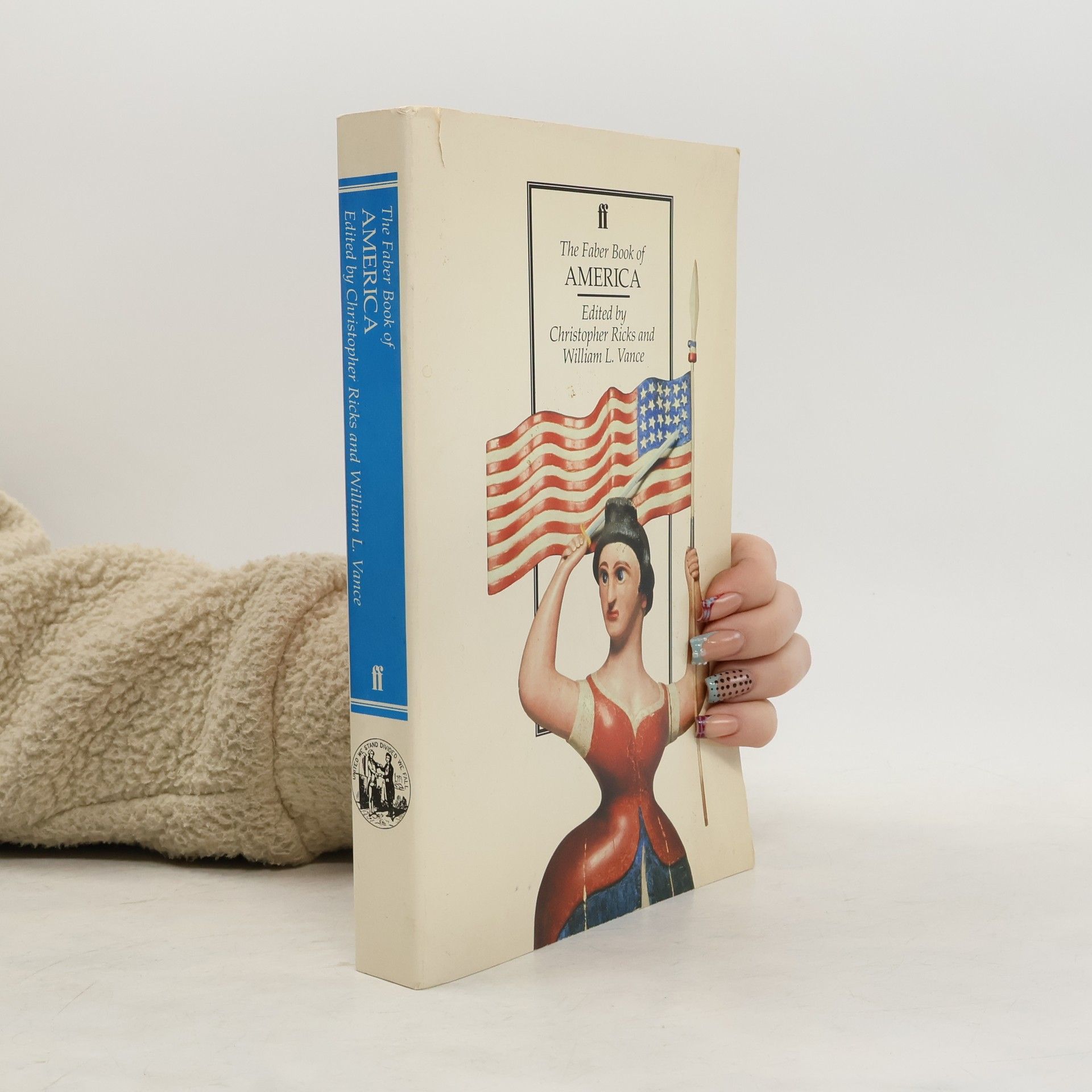


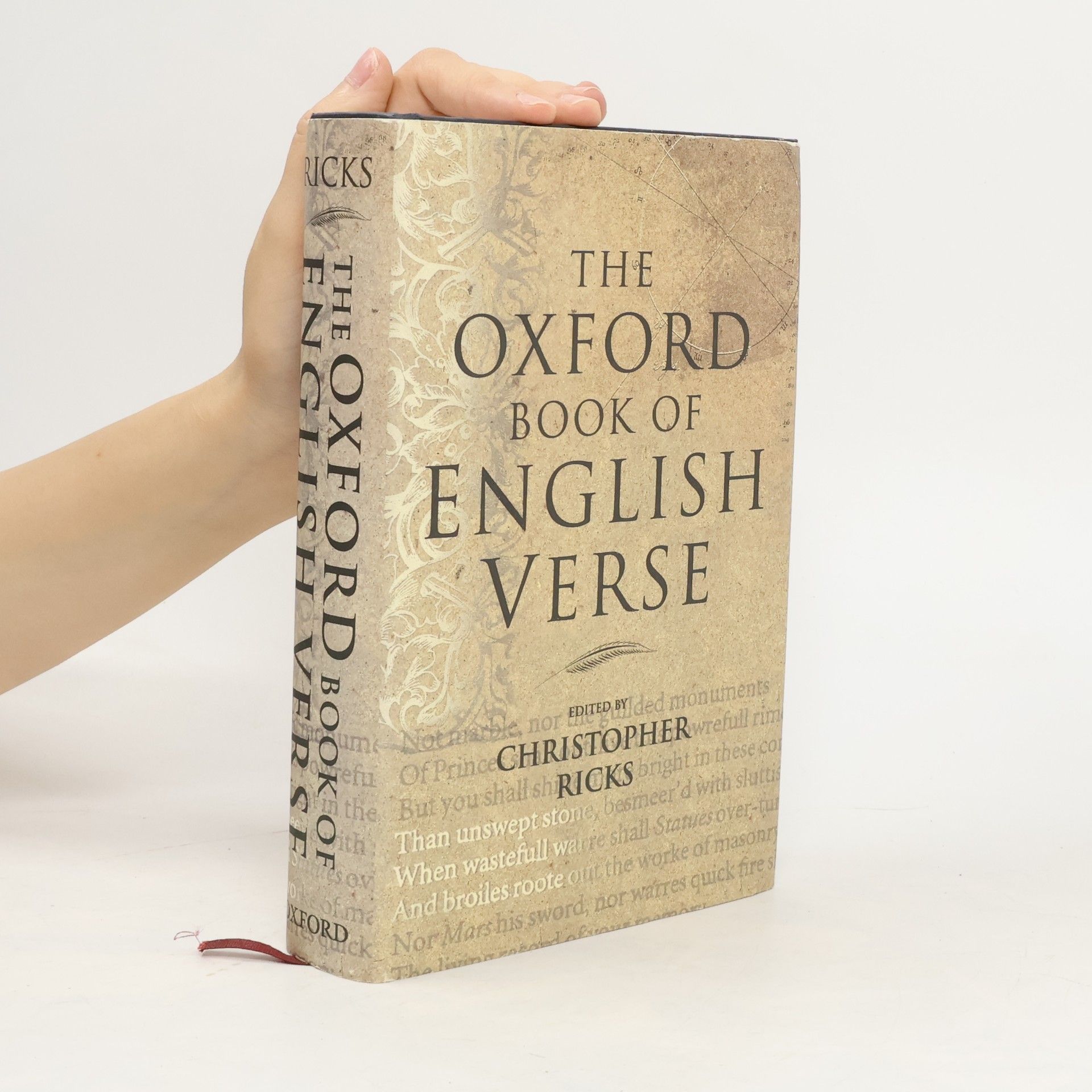
In Essays in Appreciation, Christopher Ricks continues the work of his highly-praised The Force of Poetry, with lively and provoking essays on poets and poetry. In addition, Ricks puts his appreciative pen in the service of other literary figures and genres, including drama, the novel, history and philosophy, and a discussion of Victorian biographies. Ricks wraps up the collection with a series of critical questions on literature and theory; plus two notes--on the canon, and on Empson and political criticism. W.H. Auden once wrote of Christopher Ricks that "he is exactly the kind of critic every poet dreams of finding;" with this latest volume every scholar as well as serious reader will join the poet in finding much to appreciate.
Beckett's Dying Words
- 224pages
- 8 heures de lecture
Most people want to live forever. But there is another the longing for oblivion. With pain, wit, and humor, the art of Samuel Beckett variously embodies this truth, this ancient enduring belief that it is better to be dead than alive, best of all never to have been born. Beckett is the supreme writer of an age which has created new possibilities and impossibilities even in the matter of death and its definition--an age of transplants and life-support.But how does a writer give life to dismay at life itself, to the not unwelcome encroachments of death, when it is for the life, the vitality of their language that we value writers? Beckett became himself as a writer when he realized in his very words a principle of in clichés, which are dead but won't lie down; in a dead language and its memento mori; in words which mean their own opposites, like cleaving; and in what Beckett called a syntax of weakness.This artful study explores the relation between deep convictions about life or death and the incarnations which these take in the exact turns of a great writer, the realizations of an Irishman who wrote in English and in French, two languages with different apprehensions of life and of death.
The Faber Book of America
- 467pages
- 17 heures de lecture
This is an anthology of America, not of American literature. Covers a range of writings which were not simply (or even necessarily) American, but which were about America. Includes: John James Audubon, Willa Cather, e.e. Cummings, Emily Dickinson, John Dos Passos, W.E.B. Du Bois, William Faulkner, E.M. Forster, Robert Frost, Thomas Jefferson, Martin Luther King, Jr., Sinclair Lewis, Norman Mailer, Herman Melville, H.L. Mencken, Ogden Nash, Sylvia Plath, Gertrude Stein, Henry David Thoreau, Mark Twain, H.G. Wells, Edith Wharton, Walt Whitman, William Carlos Williams, Malcolm X, & many others.
Endlessly digressive, boundlessly imaginative and unmatched in its absurd and timeless wit Laurence Sterne's great masterpiece of bawdy humour and rich satire defies any attempt to categorize it, with a rich metafictional narrative that might classify it as the first 'postmodern' novel. Part novel, part digression, its gloriously disordered narrative interweaves the birth and life of the unfortunate 'hero' Tristram Shandy, the eccentric philosophy of his father Walter, the amours and military obsessions of Uncle Toby, and a host of other characters, including Dr Slop, Corporal Trim and the parson Yorick. A joyful celebration of the endless possibilities of the art of fiction, Tristram Shandy is also a wry demonstration of its limitations. The text and notes of this volume are based on the acclaimed Florida Edition, with a critical introduction by Melvyn New and Christopher Ricks's introductory essay from the first Penguin Classics edition. For more than seventy years, Penguin has been the leading publisher of classic literature in the English-speaking world. With more than 1,700 titles, Penguin Classics represents a global bookshelf of the best works throughout history and across genres and disciplines. Readers trust the series to provide authoritative texts enhanced by introductions and notes by distinguished scholars and contemporary authors, as well as up-to-date translations by award-winning translators.
English Poetry and Prose 1540-1674
- 480pages
- 17 heures de lecture
The essays in this volume are intended to give a modern reader a sense of the many contexts within which literature exists. The particular angle or emphasis is the contributor's choice. Thus Spenser's work is discussed in relation to his life and times; Shakespeare's sonnets are explored as transforming a specific genre; while Marvell is read in the context of the Caroline circle. Writers such as Sidney, Donne and Milton are discussed in more than one context. There are substantial chapters on genres, such as the epyllion or minor epic, the lyric and the prose of the period, as well as chapters on individual writers, and there is a bibliography and a table of dates. Published in ten volumes, "The Penguin History of Literature" is a critical survey of English and American literature covering 14 centuries, from the Anglo-Saxons to the present.
Essays cover medieval and Renaissance drama as well as the works of Marlowe, Shakespeare, Jonson, and Restoration playwrights
What Maisie Knew
- 256pages
- 9 heures de lecture
What Maisie Knew (1897) represents one of James's finest reflections on the rites of passage from wonder to knowledge, and the question of their finality. The child of violently divorced parents, Maisie Farange opens her eyes on a distinctly modern world. Mothers and fathers keep changing their partners and names, while she herself becomes the pretext for all sorts of adult sexual intrigue.In this classic tale of the death of childhood, there is a savage comedy that owes much to Dickens. But for his portrayal of the child's capacity for intelligent `wonder', James summons all the subtlety he devotes elsewhere to his most celebrated adult protagonists. Neglected and exploited by everyone around her, Maisie inspires James to dwell with extraordinary acuteness on the things that may pass between adult and child. In addition to a new introduction, this edition of the novel offers particularly detailed notes, bibliography, and a list of variant readings.
Keats and Embarrassment
- 230pages
- 9 heures de lecture
In this acclaimed book, Professor Ricks argues for the importance of embarrassment in human life and for the value works of art which help us deal with embarrassment by recognizing and refining it. As a poet and a man, Keats was especially sensitive to, and morally intelligent about, embarrassment. This study demonstrates the particular direction of his insight and moral concern to acknowledge embarrassability and its involvement in important moral concerns.


